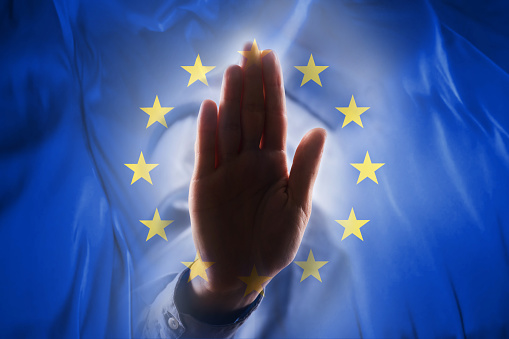Travelers from all over the world will be welcomed back to Europe next week, when national borders of the European Union reopen on July 1.
But the welcome mat probably won’t be out for Americans.
EU countries “are prepared to block Americans from entering because the United States has failed to control the scourge” of the Covid-19 pandemic, reports the New York Times.
The Times says EU leaders are “haggling over two potential lists of acceptable visitors based on how countries are faring with the coronavirus pandemic” — lists it obtained from “an official involved in the talks” and confirmed by a second unnamed official.
Both draft lists include China and dozens of other nations, based on their per-capita rates of coronavirus infection.
The U.S. isn’t on either list, the Times says.
If the situation holds, American visitors would be “lumped in” with those from Russia and Brazil, the Times says — “a stinging blow to American prestige in the world and a repudiation of President Trump’s handling of the virus” in the U.S.
In March, when Europe was the epicenter of the pandemic, Trump “infuriated European leaders when he banned citizens from most European Union countries from traveling to America.”
Trump said he was shielding the Americans from the coronavirus. At the time, there were only about 1,100 positive cases in the U.S. and 38 had died; today, more than 2.3 million Americans have contracted the virus, with nearly 121,000 deaths.
“Travelers from the United States and the rest of the world already had been excluded from visiting the 27-member EU — with few exceptions, mostly for repatriations or ‘essential travel’ —- since mid-March,” the Times says, adding that a final decision on which countries’ travelers will be allowed in early next week.
Preventing Americans from entering the EU would have enormous “economic, cultural and geopolitical ramifications,” the newspaper says:
“Millions of American tourists visit Europe every summer. Business travel is common, given the huge economic ties between the United States and the EU.”
European officials told the Times that the final “acceptable” list will be updated every two weeks, based on the global changes in the pandemic.



